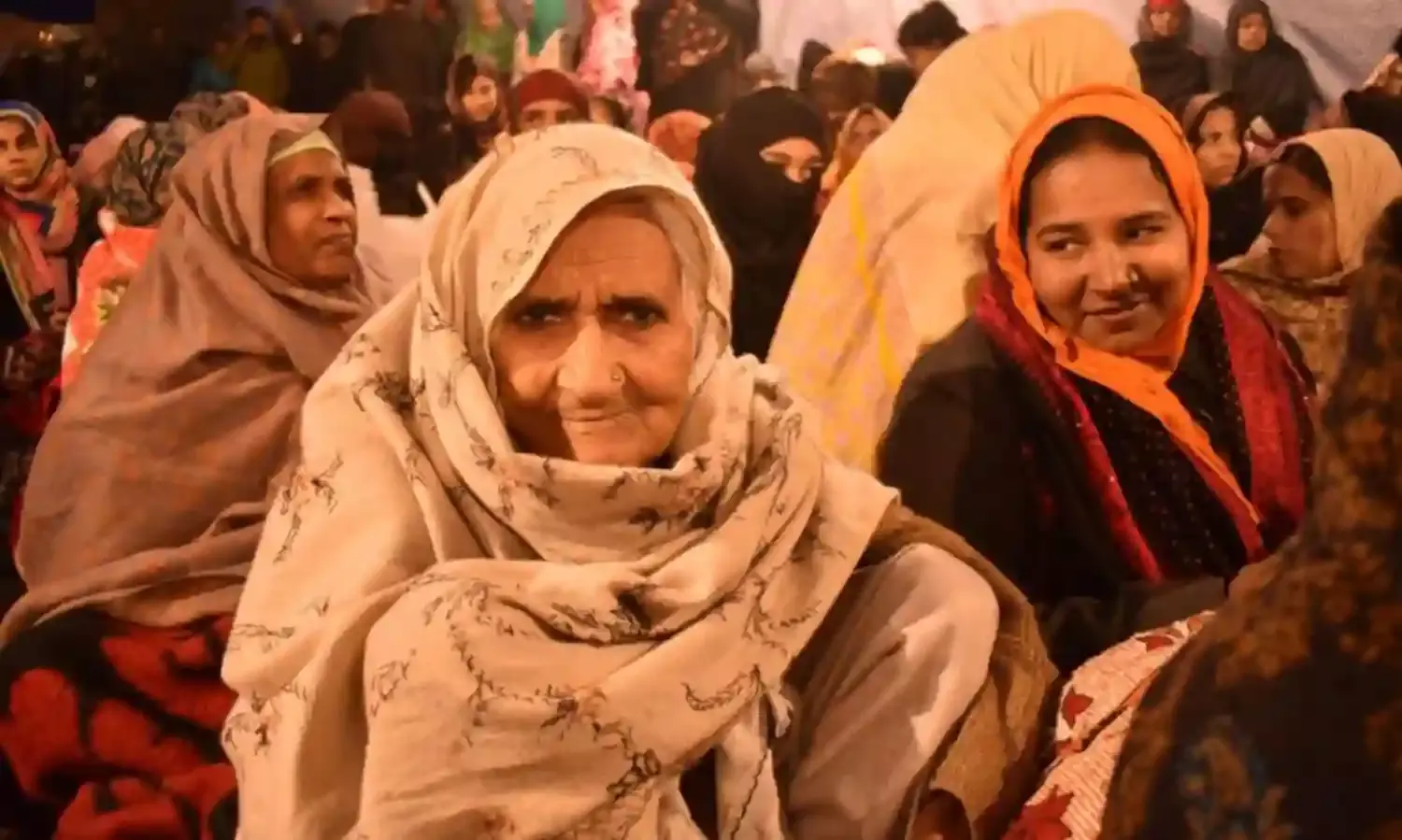Onto the New Year, with the Women of Shaheen Bagh
The protest is peaceful and defyingly feminist, as women brave the freezing cold.

NEW DELHI: “Hum dekhenge lazim hai ke hum bhi dekhenge
Wo din ke jis ka wada hai,
Jab zulm-o-sitam ke koh-e-garan Rooi ki tarrah ur jayenge
Hum mehkoomom ke paaon tale Ye dharti dhar dharkegi”
(We shall see certainly we, too, shall see; that day that has been promised to us, when these high mountains of tyranny and oppression turn to fluff and evaporate; And we oppressed beneath our feet will this earth shiver, shake and beat)”
Recited a female student in Shaheen Bagh, her hands quivering while holding the mic. She, along with a group of students her age, had just joined the 17 day long battle in South Delhi’s Shaheen Bagh for the first time. The sit-in protest, led by women, is in opposition to the Citizenship Amendment Bill, and marked with music, song and warm biryani.
Next, Umair, another student, broke into song, “Suna tha ki behad sunhari hai Delhi, smandar se khamosh gahari hai Delhi, magar ek maa ki sada sun na paae, to lgta hai goongi hai behri hai Delhi.” (A famous song by Imran Pratapgarhi)
The songs, poems and shayaris that characterise the protest of Shaheen Bagh are adding to the language of resistance, centred on the victory of resilience.
Shaihla, a protester since who has been here since the beginning, is overjoyed with the increasing momentum, as this women-led sit in protest has gone from strength to strength - this, she says, marks a transition to an enlightenment-of-sorts from the renaissance period.
The protest is peaceful and defyingly feminist, as women brave the freezing cold.
“I politely want to request the ‘Modi’ and ‘Yogi’ government that we have clearly put our lives on stake in this deadly cold winter just to request you to take back CAA” Saima Khan, a protester, said.
The protest at Shaheen Bagh has received some media attention - especially on social media as people from all walks of life have joined in to express solidarity. On New Year’s Eve, citizens put out a call to gather at Shaheen Bagh, to bring in 2020 with the protesters. The protesters, huddled together, sang the National anthem at the stroke of midnight.
People bring blankets, warm caps, shawls, food and other items - handing them out to the women as they continue their sit-in protest.
Maria, a Muslim women’s activist, said, “I have stared speaking to these women individually to understand their needs and demands which can only be met by us.”
“Women are in great need of movable toilets and sanitary napkins but they are in greater need of freedom,” Maria added.
Although the protest is led by Muslim women, its all encompassing, feminist narrative has drawn in people from all walks of life.
Hanna, a journalist we met at Shaheen Bagh, said “Although I am a Hindu and because of it I possess an already secured citizenship but I am vehemently opposing CAA, NPR and NRC because its discriminatory. How on earth are these people going to reach anywhere without a safe place to live life on. What is the point of development then?”she said.
Zainul Aabdin, a protester on hunger strike since day one, called upon the people to boycott public transport and create a long rope of cloth pieces stringed together to make their own way on the dawn of January 1, 2020.
As the new year sets in, the women of Shaheen Bagh continue their peaceful yet defiant protest - through songs, chants, and a unique narrative of feminist resilience.


